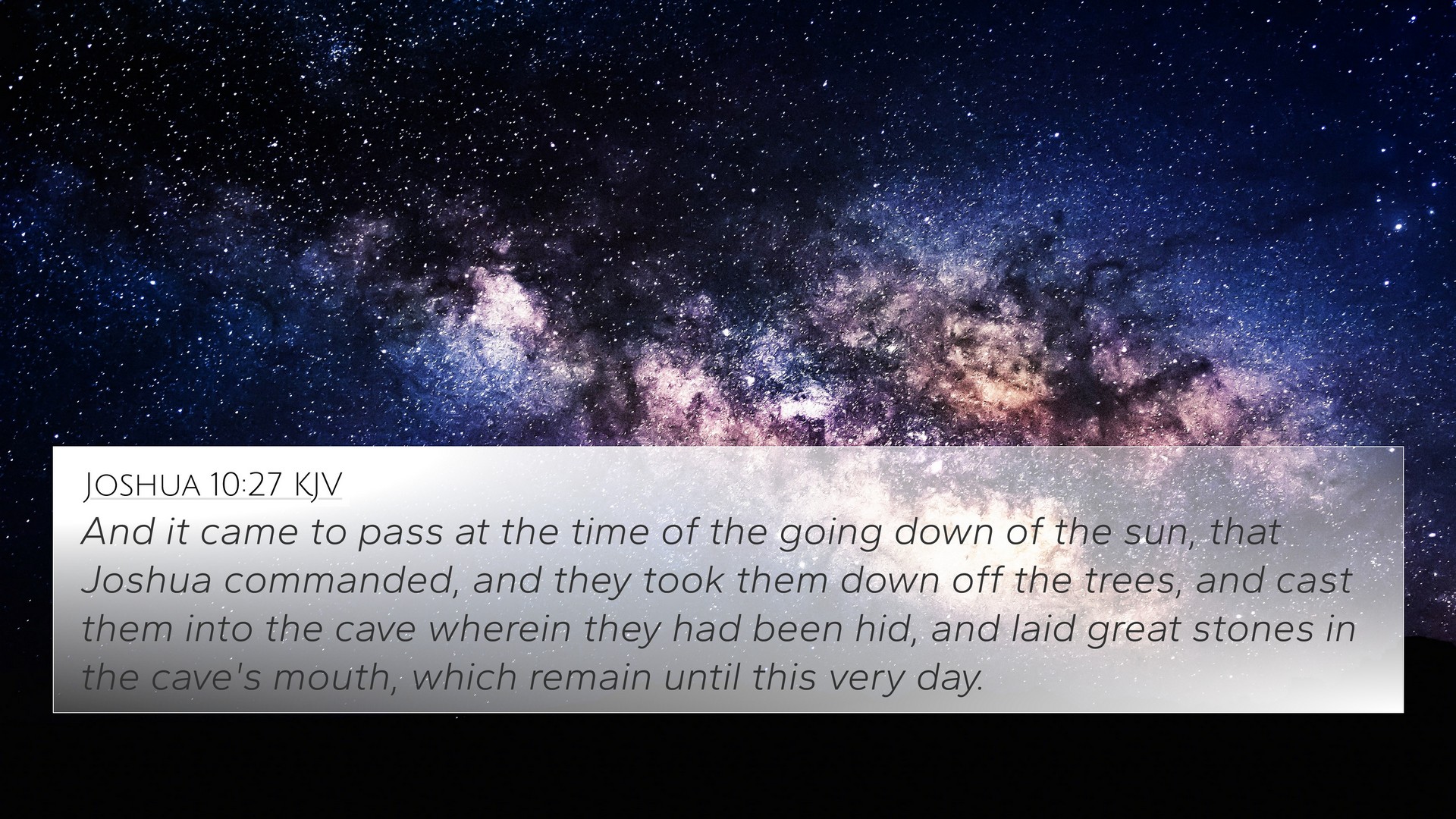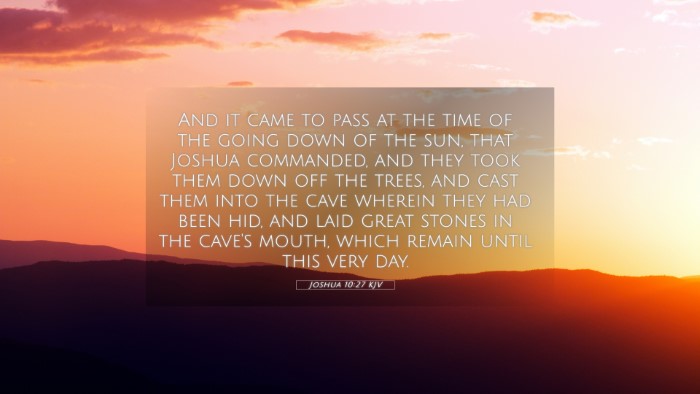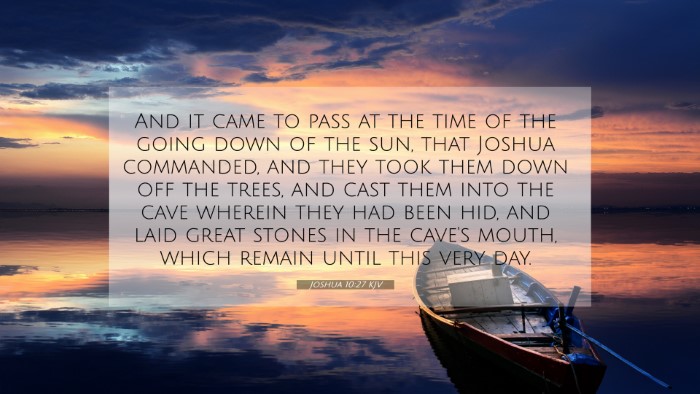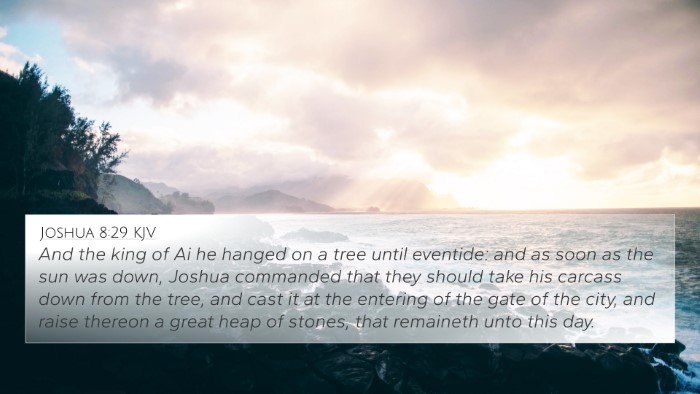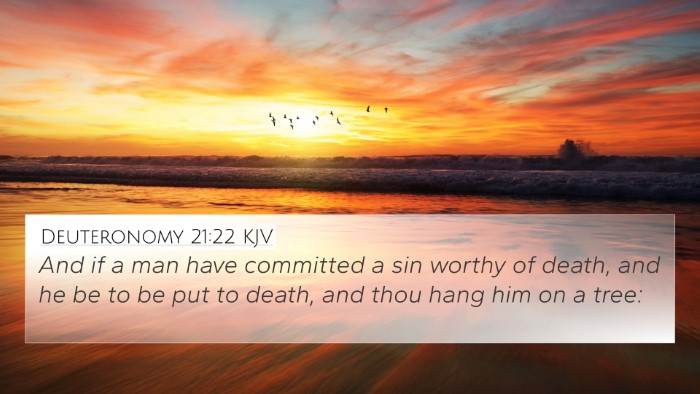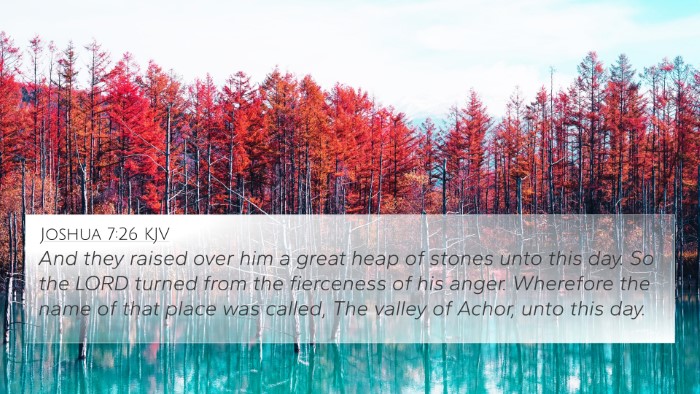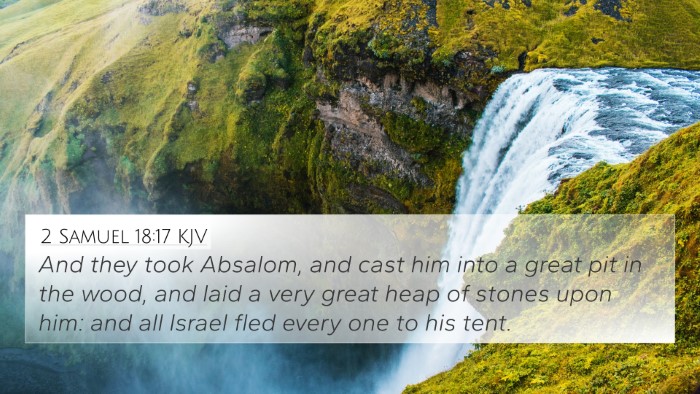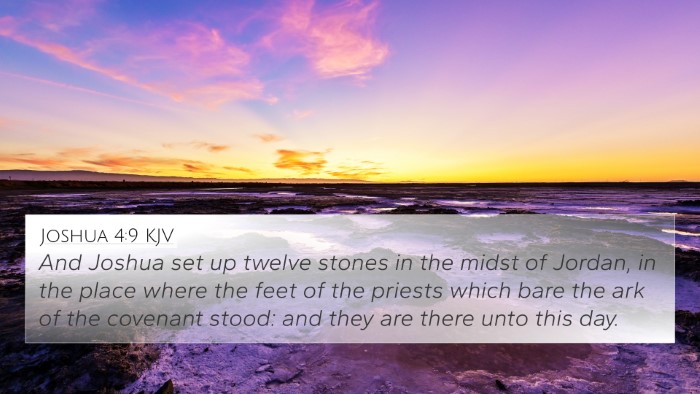Understanding Joshua 10:27
This verse provides a profound glimpse into God's provision and justice during the conquest of Canaan. In the context of Biblical narrative, Joshua 10:27 reads:
"And it came to pass at the time of the going down of the sun, that Joshua commanded, and they took them down off the trees, and cast them into the cave wherein they had been hid, and laid great stones in the cave's mouth, which remain until this very day."
Verse Meaning and Context
In this passage, we see elements of divine judgement fulfilled and Israel's military strategy in executing those who opposed God’s people. The background involves the Amorite kings who had gathered against Israel but were defeated through divine intervention. Here, Joshua shows leadership by ensuring these kings are dealt with decisively.
Key Insights from Public Domain Commentaries
-
Matthew Henry:
Henry emphasizes the significance of the act of hanging the kings, highlighting it as a symbolic gesture of God's judgment upon pride and rebellion. He notes that the sun setting during this action signifies the end of their reign and the definitive justice enacted by Joshua.
-
Albert Barnes:
Barnes explains that this act served both as a warning to others and a closure to Israel's campaign against those who had opposed them. The great stones mentioned serve as a memorial, reminding future generations of God’s mighty acts of deliverance.
-
Adam Clarke:
Clarke provides insights on the cultural implications of such a punishment, signifying utter defeat and disgrace. He draws parallels with ancient practices while also noting how these acts fulfill God’s covenant with Israel to drive out the inhabitants of the land.
Bible Verse Cross-References
Understanding Joshua 10:27 can be enriched by examining related Bible verses that build on its themes of judgment and the consequences of leaders' decisions:
- Deuteronomy 20:16-18 - Commands regarding the destruction of certain nations.
- 1 Samuel 15:3 - God's command to destroy the Amalekites, highlighting divine judgment.
- 2 Samuel 21:12-14 - The burial of Saul’s sons reflects God's justice and remembrance of divine directives.
- Galatians 6:7 - A New Testament verse emphasizing that one reaps what one sows, culminating in divine justice.
- Revelation 6:15-17 - The imagery of kings hiding from God's judgment reinforces the seriousness of divine retribution.
- John 16:33 - The promise of victory over opposition, linking to God's overarching control in earthly battles.
- Romans 12:19 - The assurance that vengeance belongs to the Lord mirrors the execution of God's judgment in Joshua’s time.
Thematic Bible Verse Connections
Joshua 10:27 resonates with themes of divine sovereignty, justice, and the fulfillment of God's promises:
- Justice: The act serves as a stark reminder of God's justice, calling to mind how God addresses sin across both the Old and New Testaments.
- Leadership: The significance of strong leadership under divine guidance is evident, connecting to the New Testament's teachings on spiritual leadership.
- Covenant Fulfillment: This reflects God's commitment to Israel, further exemplified in the New Testament where God's covenant comes to fruition through Christ.
Tools for Bible Cross-Referencing
For a deeper study of cross-references related to Joshua 10:27, consider the following tools:
- Bible concordance: A key resource for identifying specific verses related to any topic.
- Bible cross-reference guide: A tool to navigate scriptures with similar themes or contexts.
- Cross-reference Bible study: Techniques for drawing connections across various biblical texts.
- Bible reference resources: Collections that offer insights into biblical connections and themes.
Conclusion
Joshua 10:27 serves not only as a historical account of God's judgment but also as an essential part of the larger narrative of salvation history. By cross-referencing related scriptures, one can gain a fuller understanding of God’s character, His promises, and the ultimate victory that believers have through Christ.
